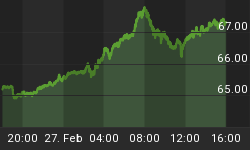The stress test may be causing more harm than good. Why? Regulators should always have a good assessment of the health of financial institutions. If there are deficiencies in the process applied to regulate banks, then the process for the system as a whole should be reviewed.
Instead, what we have is an ad-hoc test put together to gauge the health of banks. A regulator came up with the idea that counterparty risk is bad, hence, banks that deal with a lot of counterparties ought to have a greater capital cushion. This may sound good on paper, but has unintended consequences. Who says that the formula applied by the regulator is the right one? Does the regulator understand the appropriate methodology to weigh all the risks of the bank? It seems to us that the guidelines published in the government's white paper on the stress test were somewhat crude. Specifically, it may create an incentive for banks to cut low-risk relationships and focus on riskier ones. The reason? The riskier relationships tend to be more profitable (unless the counterparty fails); so if a bank must cut back its exposure regardless, why not cut from the boring and less profitable "bread and butter" businesses?
Make no mistake about it: banks may still require more capital and there are more challenges ahead. In our opinion, an arbitrary stress test does not resolve the issues at hand and may only serve to create new problems. What financial institutions - indeed all investors and businesses - need is clarity surrounding regulations and taxation. In order to plan ahead, it is destructive for policy makers to constantly change the rules of the game.
Obviously, regulators need to do their job, but there will always be market participants who are a step ahead of the game. Rather than being outraged every time someone abuses the system - and such abuse will always happen as greed is part of human nature - we need to provide incentives for such greed to be channeled in such a way that we do not have a global meltdown when things get out of hand. A way to achieve this may be to let the market decide on the total capitalization of financial institutions and thus the ability of those institutions to lend.
Don't miss an Insight:
Sign up for our Newsletter
The Archive:
Read past Merk Insights
One way to have the private sector determine how much a financial institution may lend is to require financial institutions to periodically raise money. If, for example, financial institutions were required to issue subordinated debt, representing 10% of all loans extended, the private sector would rein in any institutions that don't pass the free market's natural "stress test" by adjusting the available capital. If the cost of borrowing were too high for a financial institution, it would need to shrink its loan portfolio. Such subordinated loans could be staggered, so that refinancing is required on a periodic basis. If, say, every year, one tenth of subordinated debt were to be refinanced, it would allow an orderly shrinking of the bank's balance sheet should market conditions warrant.
We all have a stake in this. Our Senior Economic Adviser and former St. Louis Fed President William Poole has been an advocate of this concept for some time. We urgently need a discussion of market-based solutions to rein in the regulatory circus that is potentially creating more harm than good.
Healthy financial institutions are needed to foster economic growth. We need to ensure money flows from weak hands to strong hands. In our opinion, present policies achieve exactly the opposite, as taxpayer money is used to prop up bad institutions at the expense of stronger business models. To reverse this, we need to get the government out of the micromanagement of these firms. We need to put mechanisms in place to allow money to be drained from these weaker institutions without jeopardizing the financial system as a whole. This may be achieved by phasing in a market-based approach to the funding of financial institutions.
 On a separate note, we will host numerous events at the Las Vegas Money Show (May 12 - 14). Please come and visit us - we would love to see you there (click here for more information and to register); not only will we discuss the economy and the dollar, we will also provide a first preview of "SustainableWealth", a book written by Chief Investment Officer Axel Merk. SustainableWealth, due in bookstores this fall, is about understanding how the greater economic universe works, how that may affect your finances, and how to manage those finances to seek financial stability. Click here to be notified when the book becomes available.
On a separate note, we will host numerous events at the Las Vegas Money Show (May 12 - 14). Please come and visit us - we would love to see you there (click here for more information and to register); not only will we discuss the economy and the dollar, we will also provide a first preview of "SustainableWealth", a book written by Chief Investment Officer Axel Merk. SustainableWealth, due in bookstores this fall, is about understanding how the greater economic universe works, how that may affect your finances, and how to manage those finances to seek financial stability. Click here to be notified when the book becomes available.
We manage the Merk Hard and Asian Currency Funds, no-load mutual funds seeking to protect against a decline in the dollar by investing in baskets of hard and Asian currencies, respectively. To learn more about the Funds, or to subscribe to our free newsletter, please visit www.merkfund.com.















